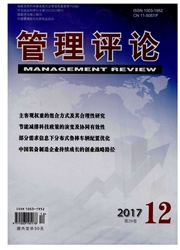

 中文摘要:
中文摘要:
利用我国相关月度数据构建半参数全局向量自回归模型,实证分析货币政策、经济波动与房地产价格之间的动态关系。研究发现:(1)货币供应量的增长和信贷规模的扩大对房地产价格和经济波动产生正向影响,且对高房价区域的房地产价格影响最大。(2)房地产价格的上涨对社会消费和社会固定资产投资产生正向影响,且对低房价区域的影响最大。(3)利率对房地产价格的影响呈显著的非线性关系。整体上,当银行间同业拆借利率处于较低区间时,提高利率并不能抑制房地产价格上涨;当银行间同业拆借利率处于较高区间时,提高利率能够显著抑制房地产价格上涨。
 英文摘要:
英文摘要:
Based on the monthly data of China, and constructed the semi-pammetric GVAR model to study the dynamic relationship among monetary policy, real estate prices and economic fluctuations. The study find that money supply and credit scale have positive impact on regional real estate prices and economic fluctuations, and the largest impact is in high prices region. The real estate prices have positive effect on the regional consumption and investment, and the largest impact is in lower prices region. Interest rates has a significant non-linear relationship with the impact of real estate prices in various regions. As a whole, when the interbank offered rate is at lower stage, the interest rate cannot be achieved the goal of lowering house prices. When the interbank offered rate is at higher stage, to raise interest rates, can significantly inhibit the rise in real estate prices.
 同期刊论文项目
同期刊论文项目
 同项目期刊论文
同项目期刊论文
 期刊信息
期刊信息
